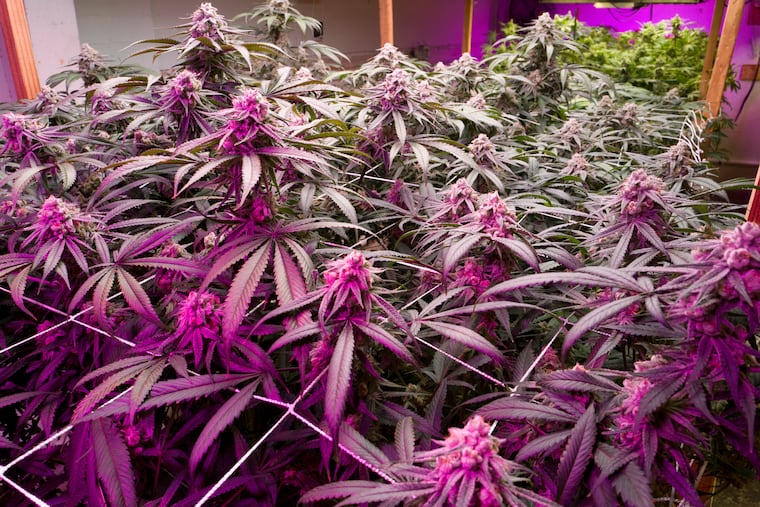Cannabis research: Mississippi ‘ditch weed’ supplier could soon have Pennsylvania competitor
The U.S. Department of Justice said Monday that it plans to expand the number of marijuana growers authorized to supply institutions conducting federally-approved cannabis research.

The U.S. Department of Justice said Monday that it plans to expand the number of marijuana growers authorized to supply institutions conducting federally approved cannabis research.
The move could benefit leading cannabis companies with sizable footprints in the region, such as Columbia Care and Pharmacann. But whichever firm might win a federal contract, it will be producing marijuana for researchers, not the general public.
For decades, the University of Mississippi has been the only entity federally licensed to produce marijuana for research.
The long-awaited move comes after researchers sought court intervention to compel the Drug Enforcement Administration to process the applications to grow marijuana for research. The DEA began accepting applications to grow marijuana for federally approved research about three years ago, but the agency has yet to approve any of the more than two dozen applications filed.
“I would hope this is a further reflection of the federal government accepting the fact that cannabis may provide certain health benefit to patients in this country,” said Philadelphia-based cannabis attorney Joshua Horn of Fox Rothschild. “About a year ago, the FDA approved Epidiolex, a drug made from marijuana to treat epilepsy. So one would think this is an extension of that decision.”
Both Republican and Democratic lawmakers in Congress have questioned why the Justice Department has been stalling. U.S. Attorney General William Barr had promised to look into the status of the applications in April.
Researchers in recent years have complained that the Mississippi cannabis is of poor quality and low potency, and often tainted by mold and other impurities. Some have called it “Mississippi ditch weed” and lamented that the delay has prevented them from doing federally permitted science using high-quality, readily-available marijuana produced in other states.
The move announced Monday would give researchers a wider variety of cannabis to study, Uttam Dhillon, the DEA's acting administrator, said in a statement.
“DEA is making progress in the program to register additional marijuana growers for federally authorized research, and will work with other relevant federal agencies to expedite the necessary next steps,” Dhillon said.
It remains unclear how the decision may effect Pennsylvania’s clinical research program. The state recently awarded three permits to companies to partner with major state health systems to conduct observational studies, and on Saturday announced it is accepting applications for five more.
Sue Sisley, an Arizona-based physician who researches the effects of marijuana on PTSD and opioid-abuse disorders, declared the DEA’s decision to end the 51-year monopoly held by Mississippi “a complete and historic victory.”
Sisley, who consults with several medical marijuana companies in Pennsylvania, had filed the federal lawsuit demanding access to higher quality cannabis. She said she was “cautiously optimistic” at the development.
“Now we just need to keep the DEA’s feet to the fire and make sure they follow the timelines laid out in today’s public notice,” Sisley said. “It’s going to take a long time to get access to newly cultivated cannabis material for research, but at least that door is now kicked open.”
Sisley’s own Scottsdale Research Institute in Arizona is one of 33 institutions that have filed to become what the government calls “bulk manufactures of marihuana.” Other applicants include JT Medical of Lewistown, Pa.; the University of Massachusetts; and the University of California, Davis. The University of Mississippi also threw its hat in the ring again.
The Department of Justice posting appears to invite more cannabis growers to apply.
The agency is also planning to propose new regulations that would govern the program and help the agency evaluate the applications, the Justice Department said.
John Hudak, a senior fellow at the Brookings Institution who wrote Marijuana: A Short History, cast suspicion on the DEA and expects the agency to continue to drag its feet.
“They are buying themselves more time by saying ‘We’ll begin to consider applications, but we’ll need everyone to comply with a new set of regulations,'” Hudak said. “My guess would be that unless they already have chosen a grower who they feel comfortable with — and craft regulations that specifically will match that candidate — they will disqualify everyone.
“They’re looking to delay this for as long as possible.”
This article contains information from the Associated Press.